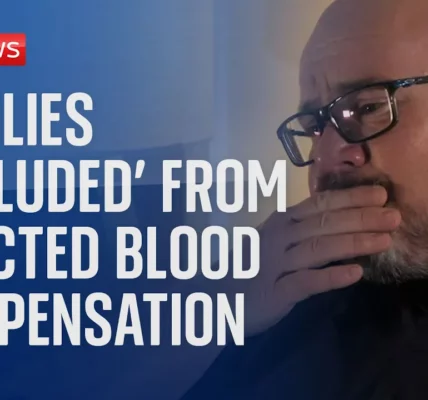The Human Rights Crisis in the Asia Pacific Region: Insights from Peter Ooy

This article delves into the alarming human rights situation in the Asia Pacific region, highlighting insights from Peter Ooy, a senior advisor on migration and human rights in the UN Human Rights office. The proliferation of scam centers and the associated violence and exploitation of victims are examined in detail.
Introduction
The Asia Pacific region is currently facing a critical human rights crisis, particularly concerning the emergence and operation of scam centers. Peter Ooy, a senior advisor on migration and human rights for the UN Human Rights office, has highlighted the severe implications of this issue. With a growing number of individuals being forced into these centers through fraudulent means, the human rights situation is increasingly dire. This article aims to explore the multifaceted aspects of this crisis, including the systemic issues of corruption, violence, and the broader socio-political context that allows these operations to thrive.
The Proliferation of Scam Centers
Scam centers have become a significant concern in the Asia Pacific region, often linked to various illicit activities such as drug trafficking and financial crimes. The operations of these centers are not only a human rights issue but also a symptom of deeper systemic problems.
Understanding the Scam Centers
These centers exploit vulnerable populations, drawing individuals into situations of coercion and violence. The following points outline the nature of these operations:
- Fraudulent Recruitment: Many individuals are lured under false pretenses, often with promises of employment or better living conditions.
- High Levels of Violence: Victims often face severe physical and psychological abuse.
- Industrial Scale Operations: These centers operate on a large scale, indicating an alarming level of organization and funding.
The Economic Impact of Scam Centers
Peter Ooy emphasizes that the economic implications of these scam centers are staggering, with estimates suggesting that they generate over $60 billion annually through criminal activities. This revenue not only fuels the operations themselves but also contributes to destabilization across the region.
Corruption and Instability
The illicit profits from scam centers are often funneled into corrupt practices, exacerbating instability:
- Funding Armed Groups: Profits are sometimes used to support armed conflict, particularly in border areas.
- Corruption at High Levels: There are significant links between these operations and corrupt officials who may turn a blind eye in exchange for financial gain.
- Impact on Local Communities: The presence of these centers can lead to increased violence and unrest in affected areas.
Addressing the Root Causes
To effectively combat the issue of scam centers, a multifaceted approach is needed. Ooy stresses that merely focusing on law enforcement is insufficient; structural changes are necessary to address the underlying problems.
The Role of Governance and Civil Society
Governments in the region must take a holistic approach, which includes:
- Enhancing Media Freedoms: Supporting investigative journalism is crucial for exposing and addressing these crimes.
- Strengthening Civic Space: Allowing civil society organizations to operate freely can provide a counterbalance to corruption and abuse.
- Comprehensive Policy Changes: Governments need to implement policies that address the socio-economic factors driving individuals into these scam centers.
Conclusion
The insights provided by Peter Ooy shed light on the urgent need for action regarding the human rights crisis caused by scam centers in the Asia Pacific region. These centers not only exploit vulnerable individuals but also contribute to broader socio-economic instability. It is essential for governments to adopt a comprehensive approach that includes enhancing media freedoms, empowering civil society, and tackling corruption directly. By doing so, they can create a more resilient society capable of combating these human rights violations. We encourage readers to stay informed and support initiatives aimed at addressing these critical issues.
“`




